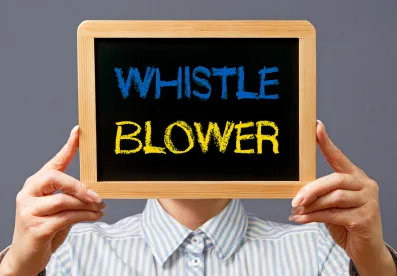On July 21, 2021, the U.S. District Court for the Southern District of New York held that the whistleblower protections established in SOX are not restricted to employee whistleblowers, but also extend to shareholders. SEC v. Collector’s Coffee Inc., No. 19-cv-4355.
Background
As we previously reported, in 2019 the SEC sued online auction portal Collectors Coffee and its CEO, alleging in an amended complaint that the CEO attempted to prevent investors from communicating with the SEC in violation of Rule 21F-17. Rule 21F-17, which was adopted by the SEC after the passage of the Dodd-Frank Act, prohibits company actions that impede individuals from reporting a possible securities law violation to the SEC. Although the Obama-era SEC brought multiple enforcement actions to enforce Rule 21F-17, this action was notable as it was the SEC’s first public attempt to enforce Rule 21F-17 during the Trump administration.
The SEC alleged in its lawsuit that the CEO and Collectors Coffee attempted to enforce a settlement agreement they had reached with two investors who had accused the CEO of making material misrepresentations and omissions, which contained a provision prohibiting communications with regulatory agencies like the SEC.
On June 26, 2020, Defendants filed a motion to dismiss, and on May 17, 2021, Magistrate Judge Gabriel Gorenstein issued a Report & Recommendation recommending that the District Court deny their motion because SOX is not restricted to employee whistleblowers. Collectors Coffee and the CEO objected to the Magistrate Judge’s Report, arguing that the SEC exceeded its rulemaking authority in promulgating Rule 21F-17, and that the Rule violates the First Amendment of the United States Constitution.
Ruling
District Judge Victor Marrero adopted the Magistrate Judge’s Report and Recommendation in its entirety. Defendants argued that Rule 21F-17 exceeded the SEC’s rulemaking authority because Rule 21F-17 applies to any “person,” while Section 21F of the Exchange Act applies only to whistleblower-employees. The court rejected this argument, holding that the broad definition of the term “whistleblower” in Section 21F—which includes “any individual who provides … information relating to a violation of the securities laws to the [SEC]”—is not restricted to the employer-employee context. The court also relied on the Congressional intent behind Section 21F, which was to encourage whistleblowing activity and protect whistleblowers generally.
The court also rejected Defendants’ First Amendment argument, holding that because the contractual provisions they sought to enforce would be illegal and unenforceable under Rule 21F-17, no First Amendment right was abridged.
Implications
This decision provides for a broad reach of Rule 21F-17. Companies should ensure that their internal investigation protocols and settlement agreements include language making clear that whistleblowers may report concerns to the SEC.





 />i
/>i

